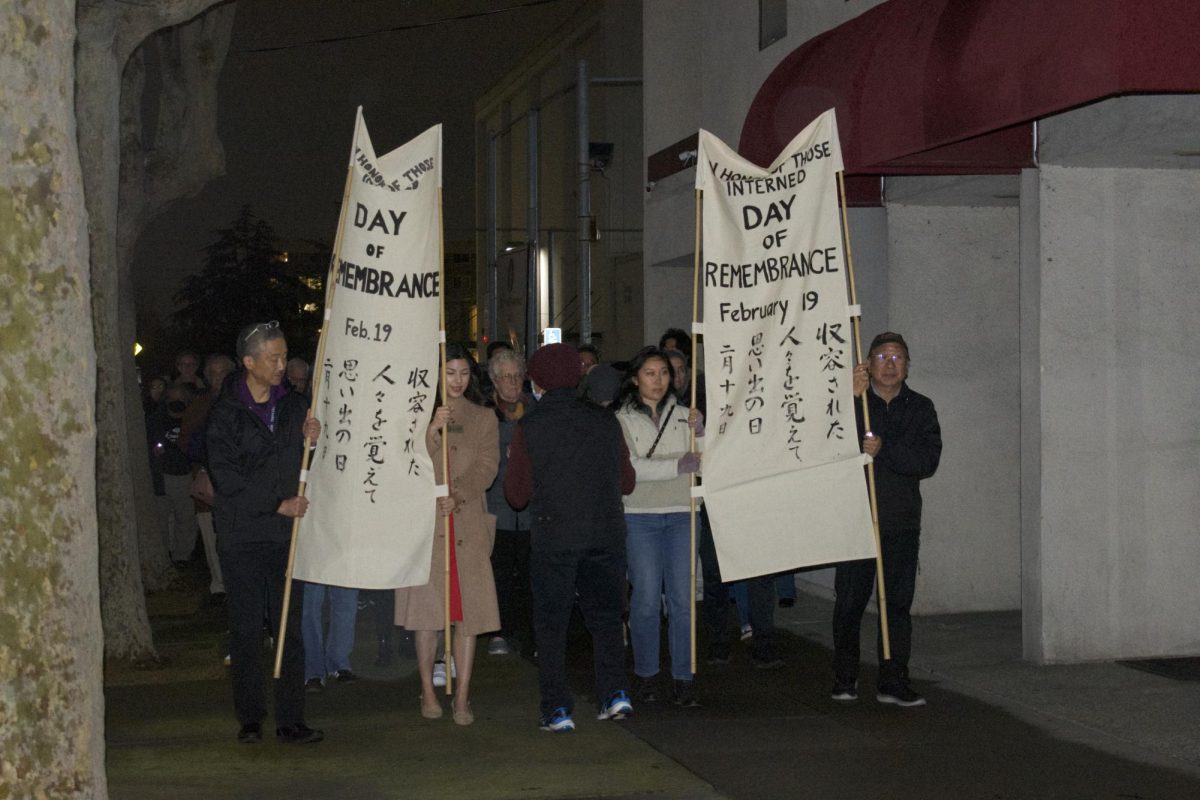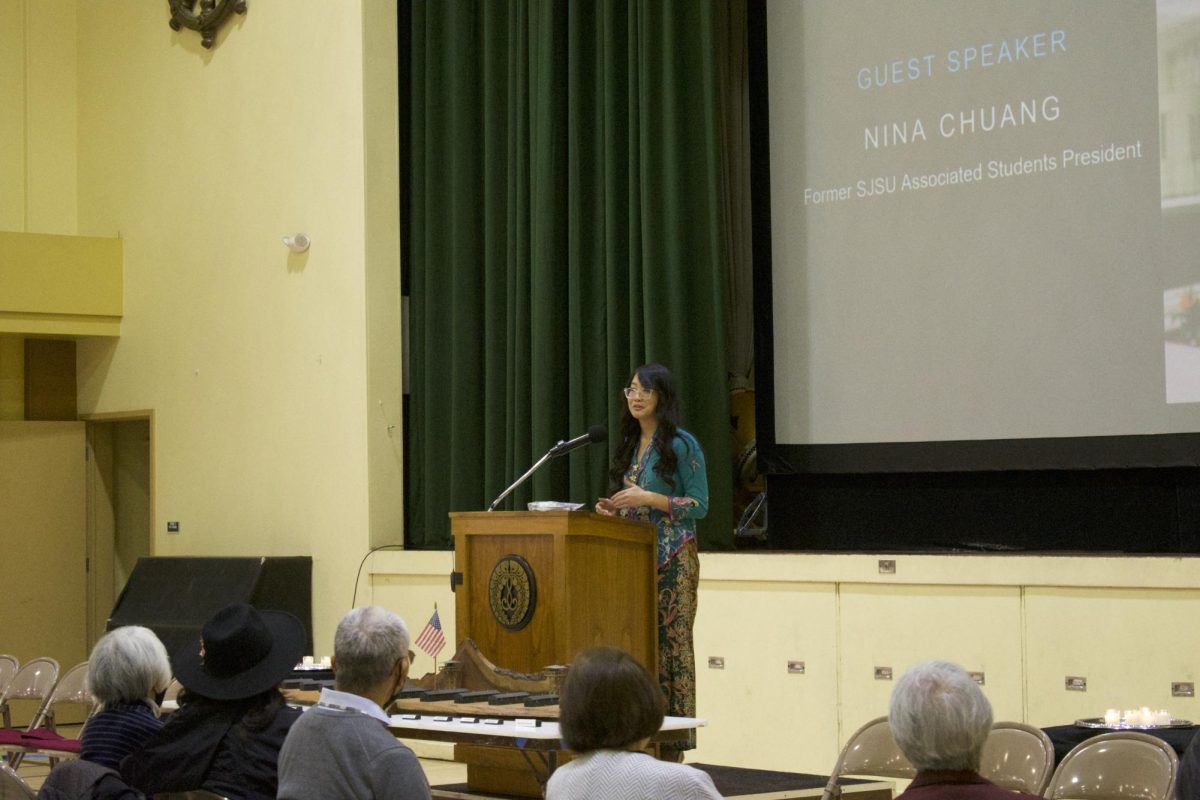Japanese taiko drums boomed as a moving melody flowed from the fue, a traditional Japanese flute commonly used to accompany taiko drumming. Survivors of the 10 internment camps walked to the center table to light a candle to honor the thousands who were interned during World War II.
San Jose’s 44th Day of Remembrance was hosted on Sunday, Feb. 18, by the Nihonmachi Outreach Committee to honor the 120,000 Japanese Americans who were incarcerated in American internment camps during World War II. This year’s theme was “Youth Activism: Building Community” to bring awareness about the redress and reparations movement and to encourage today’s youth to engage in activism in their communities. The Japanese American Citizens League continues to work towards increasing youth engagement.
This event is held annually to commemorate the signing of Executive Order 9066 by former President Franklin D. Roosevelt, which led to the incarceration of 120,000 Japanese-Americans during World War II.
One of the guest speakers included Nina Chuang, recent past president of Associated Students at San Jose State University, who recounted her effort to establish an official annual Day of Remembrance at the university.
Chuang described how she felt when she first learned of the past civil liberties injustices, which prompted her to take action.
“I felt for me, personally, like a contradiction, the fact that I was in a leader or an institution that was complicit in xenophobia, right?” Chuang said.
Chuang described how the professors of Asian American studies around her inspired her initiative.
“When we make history personal, it changes,” Chuang said. “It changes our perspective of what we want to do next — are we going to be complacent when learning about this history? When we take it personally, it makes a difference.”
Chuang’s initiative was built on the efforts of James Matsumoto, who in 2013, led a student organization as the first generation to advocate for a Day of Remembrance monument on the SJSU campus.
Tom Ishidari, a concentration camp survivor and co-president of the Japanese American Citizens League, described the lack of awareness surrounding the internment of Japanese-Americans when he grew up and affirmed that he felt grateful for the growing acknowledgment and education.
“I didn’t really know about it [the internment], even though I was born in the concentration camp because my parents didn’t talk about it,” Ishidari said. “I didn’t realize that I was part of one of the greatest civil liberties disasters of the US. I had to learn that all later as an adult.”
Chuang spoke about how she felt empowered by the theme of youth activism.
“We are told as young people all the time that we’re too young or too inexperienced to say something about politics, to say something about the world — that’s not true,” Chuang said. “The events that we have today, the organizations, come from youth activism — from a generation saying, ‘No, we will not be complacent in this. No, we do not accept the system how it is, we want it to be different.’”

